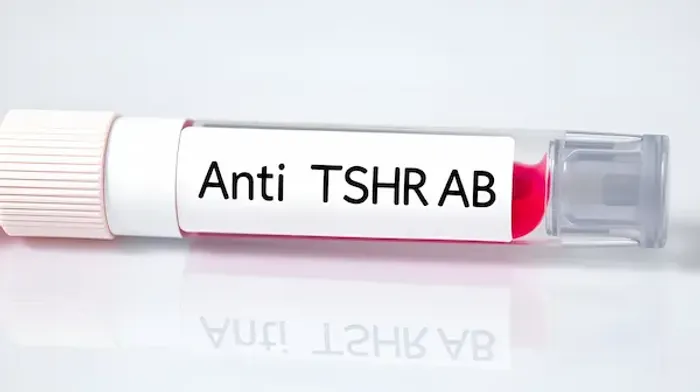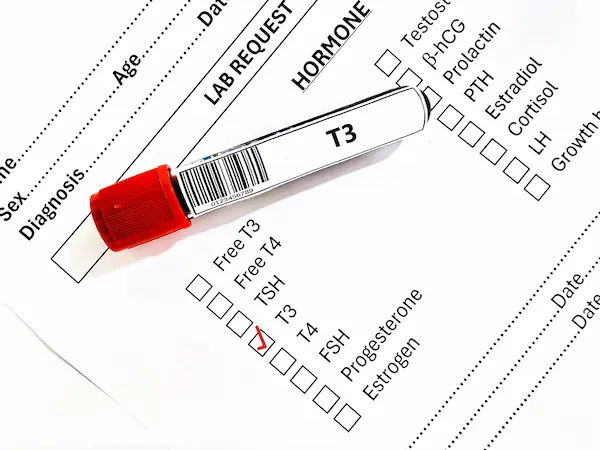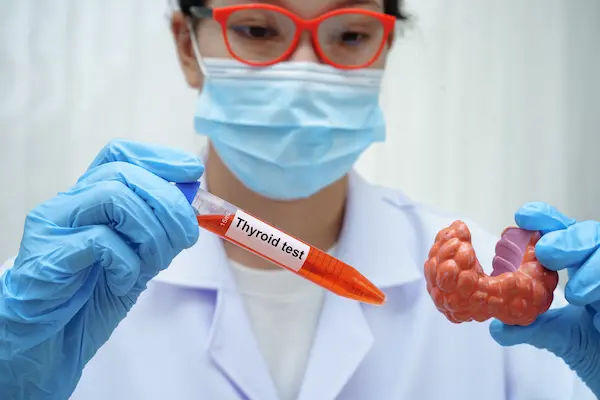TSH Receptor Antibody Test Overview
Learn about the TSH Receptor Antibody (TRAb) test, its role in diagnosing autoimmune thyroid disorders like Graves’ disease, and how results guide treatment and management.


If you or a loved one has been advised to take a TSH Receptor Antibody (TRAb) Test, you might have questions about what it is, why it’s needed, and what the results mean. This article will guide you through everything in simple, easy-to-understand terms.
What is a TSH Receptor Antibody Test?
The TSH Receptor Antibody (TRAb) Test is a blood test that checks for antibodies that affect your thyroid gland. These antibodies can interfere with how your thyroid works, leading to conditions like Graves’ disease or Hashimoto’s thyroiditis.
Your thyroid is a small, butterfly-shaped gland in your neck that controls important body functions like metabolism, energy levels, and heart rate. When antibodies attack the thyroid, it can cause it to become overactive
(hyperthyroidism) or underactive (hypothyroidism).
Why is This Test Done?
Your doctor may recommend a TRAb test if you have symptoms of thyroid disorders, such as:
Symptoms of Hyperthyroidism (Overactive Thyroid)
- Unexplained weight loss
- Rapid or irregular heartbeat
- Anxiety, irritability, or nervousness
- Tremors (shaky hands)
- Increased sweating
- Bulging eyes (in Graves’ disease)
Symptoms of Hypothyroidism (Underactive Thyroid)
- Fatigue and sluggishness
- Weight gain
- Feeling cold often
- Dry skin and hair
- Depression
- Constipation
The test helps diagnose autoimmune thyroid diseases, especially Graves’ disease, where the immune system mistakenly attacks the thyroid, making it produce too much hormone.
How is the Test Performed?
The TRAb test is a simple blood test. A healthcare professional will draw a small amount of blood from your arm,
which is then sent to a lab for analysis. No special preparation is needed, but always follow your doctor’s instructions.
Understanding Your Results
- Normal Range: A negative or low level of TSH receptor antibodies means they are not affecting your thyroid.
- High Levels: Elevated TRAb levels suggest an autoimmune thyroid disorder, most commonly Graves’ disease.
Your doctor will explain the results and recommend further tests or treatments if needed.
How Can You Manage Thyroid Disorders?
If your test shows abnormal TRAb levels, your doctor may suggest:
Medical Treatments
- Antithyroid medications (for hyperthyroidism)
- Thyroid hormone replacement (for hypothyroidism)
- Beta-blockers (to control rapid heartbeat)
Lifestyle & Dietary Tips
- Eat a balanced diet – Include iodine-rich foods (like seafood, dairy) if advised, but avoid excess iodine if you have Graves’ disease.
- Avoid processed foods – Excess sugar and unhealthy fats can worsen symptoms.
- Exercise regularly – Helps with metabolism and energy levels.
- Manage stress – Stress can trigger thyroid flare-ups; try yoga or meditation.
- Get enough sleep – Poor sleep affects hormone balance.
When to See a Doctor?
If you experience symptoms like unexplained weight changes, fatigue, or heart palpitations, consult a doctor. Early
diagnosis and treatment can prevent complications.
Need a Thyroid Test?
You can easily book a TSH Receptor Antibody Test or consult an endocrinologist through Apollo 24|7. Early testing
ensures timely treatment and better health outcomes.
Get Your Health Assessed
Final Thoughts
Thyroid disorders are common but manageable. The TRAb test helps identify autoimmune thyroid conditions so that proper treatment can be given. If you suspect thyroid issues, don’t ignore the symptoms; get tested and take control of your health!
Would you like to schedule a thyroid test or speak to a specialist? Visit Apollo 24|7 today for quick and reliable healthcare services.
Consult an Endocrinology for the best advice
Consult an Endocrinology for the best advice

Dr. Arunava Ghosh
General Physician/ Internal Medicine Specialist
10 Years • MBBS,MD(GENL.MED.),DM(ENDOCRINOLOGY)
Kolkata
VDC Clinic, Kolkata

Dr. Shiva Madan
Endocrinologist
10 Years • MBBS , MD (General medicine) , DM (Endocrinology)
Bikaner
Sushma diabetes and Endocrine center, Bikaner

Dr. Nilotpal Mitra
General Physician/ Internal Medicine Specialist
21 Years • MBBS, PGDGM ( Geriatric Medicine), ACMDC (an Advance course in Diabetes and cardiovascular diseases from PHFI and WHF )
Kolkata
MCR SUPER SPECIALITY POLY CLINIC & PATHOLOGY, Kolkata
(25+ Patients)

Dr. Anand Ravi
General Physician
2 Years • MBBS
Bengaluru
PRESTIGE SHANTHINIKETAN - SOCIETY CLINIC, Bengaluru

Dr. E Prabhakar Sastry
General Physician/ Internal Medicine Specialist
40 Years • MD(Internal Medicine)
Manikonda Jagir
Apollo Clinic, Manikonda, Manikonda Jagir
(175+ Patients)




.webp)
